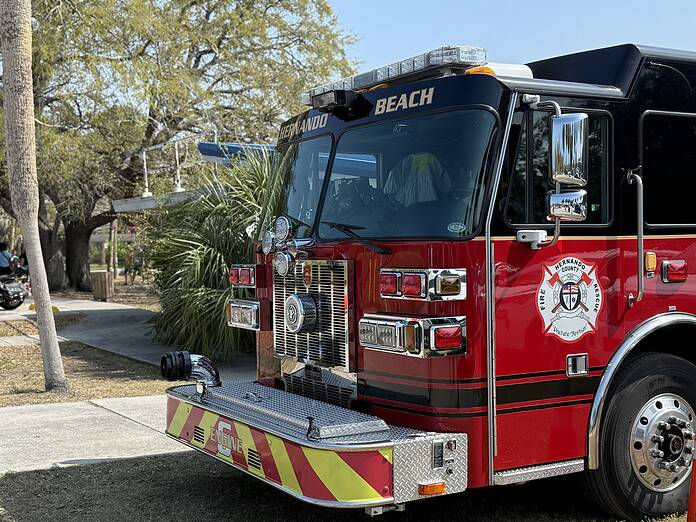After Public Safety Director and Fire Chief Paul Hasenmeier presented the projected annual increases for the Fire Assessment Municipal Services Benefit Unit (MSBU) to the Board of County Commissioners (BOCC), the BOCC came to an agreement to attempt to reduce the proposed maximum 7 percent annual increase, which is proposed to begin in 2027.
During the June public hearing on the subject, the rate could be adjusted downward from the maximum. All commissioners agree they would like to see a rate increase under 7 percent. However, most are concerned that lowering the rate increase to 5 percent (maximum) would result in a revenue shortfall.
According to Hasenmeier, the largest driver for the proposed increases is the steadily rising population, resulting in more calls for service. The data was presented from a study conducted by Raftelis, a government consulting company. County attorney Jon Jouben added that the reason for the professional study is to show justification for any increase in taxes, as required by state law.
In addition to incidents that require a response from the fire department, HCFR currently has capital improvement plans in place and budgeted for five additional fire stations – three on the west side of the county, and two on the east side. Additionally, there are plans for a fire headquarters, a training center, remodeling of Station 12, and driveway repairs for two existing stations. With additional fire stations coming online, additional personnel will be required to staff them.
Hasenmeier was directed to contact Raftelis to find additional modifications that would decrease the maximum MSBU that was presented at the April 22 meeting. Commissioners do not disagree that the department needs to increase revenue, but are also concerned about overburdening taxpayers.
Commissioners also noted that the board could review the fire assessment year-to-year before 2030 and decrease rates in the future if it is rational to do so.
Commissioner Steve Champion is still strongly opposed to any increase. Champion and Hasenmeier discussed the large differences in rate increases since 2016. Champion maintained that the fire assessment rate has doubled, even though the population has not. Hasenmeier answered that there were several years when no action was taken to adjust the MSBU. “If you don’t keep up with CPI (The Consumer Price Index), if you do nothing for five years, to keep up with those inflationary rates, you’re going to have to take a big jump instead of doing a steady increase.”
The big jump appears to take place in Fiscal Year 2026 (FY 26). According to the proposal, residential owners could see a one-percent decrease, and the fire MSBU for industrial and warehouse properties could drop by 59 percent. However, most other property types could see a large increase. Under the proposal, unimproved properties and acreage could jump 349 percent next year. Other increases show commercial properties potentially increased by 12 percent, hospitals and nursing homes: 48 percent, churches: 117 percent, government: 11 percent, and agricultural: 100 percent.

